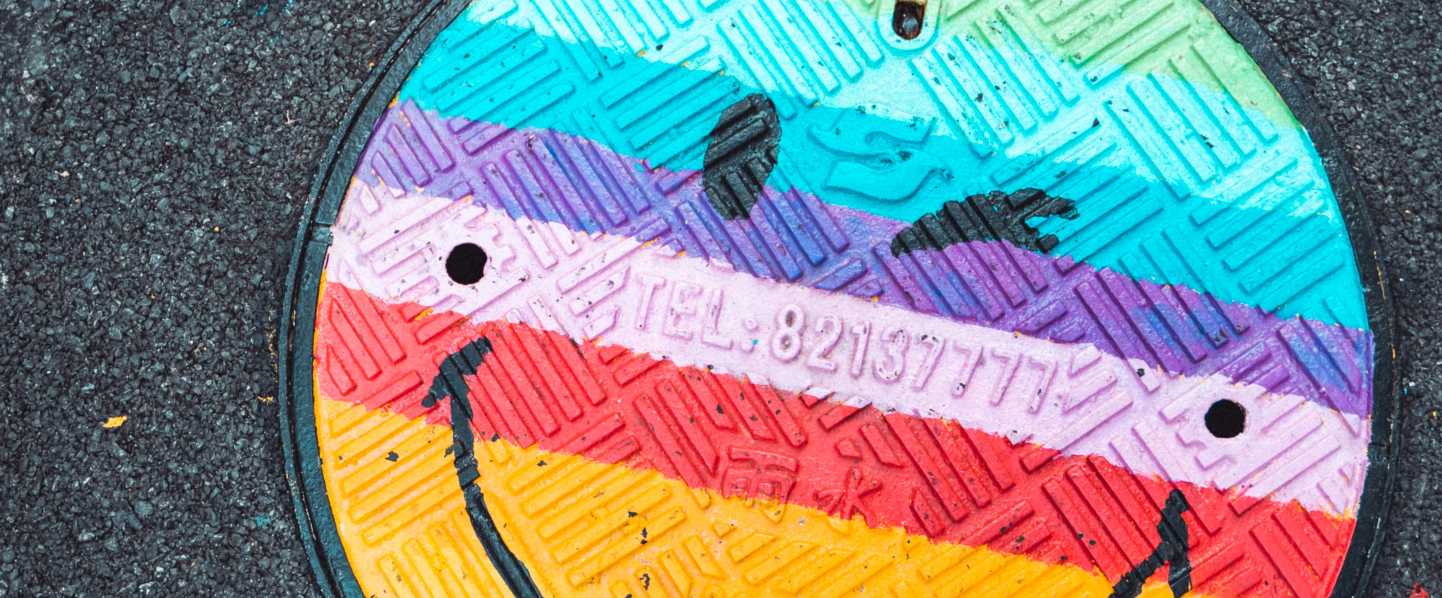
What is happiness?
‘Happiness and contentment embrace quality of life and are a lifelong quest’ (Azzopardi, Clark & Falzon, 2022, p. 1). Discuss the statement by framing the debate around the impact of social withdrawal and cancel culture. Engage with literature, personal experiences and reflections made during lectures.
Defining’ Happiness and Contentment
Happiness. Happiness and contentment are terms that are often taken for granted and thrown about without being given much thought. This does not diminish the fact that everyone wants one thing, that is to be happy, whatever that means! Diener et al., (2008)’s research exhibits, how being happy is desirable and necessary for the wellbeing of an individual. But what is happiness? What is contentment?
A dictionary definition oversimplifies the process of trying to define the subjective nature of this debate and how these are attained or satisfied. Craig, (2022) points out how modern psychology defines happiness as ‘subjective well-being’, that is, an individual’s overall personal experience and feeling about one’s life. Happiness is also considered as an emotional state, “characterized by feelings of joy, satisfaction, contentment, and fulfilment”, (Cherry, 2022, p. 1).
The philosophy of Happiness
Since days immemorial philosophers and thinkers have pondered on this question. Craig, (2022) goes on to explain how the first ancient Greek philosopher to scrutinise the nature happiness was Democritus. Democritus contended happiness as a ‘case of mind’ rather than as a result of ‘favourable fate’. This introduced a more subjective view on happiness. However, these views seems not to have been endorsed by Socrates and Plato. They conceptualised happiness based on a more objective view, claiming that happiness is the “secure enjoyment of what is good and beautiful” (Plato, 1999, p. 80). Kesebir & Diener, (2009) clarify how Aristotle in his influential work Nicomachean Ethics, based primarily on ‘eudaemonia’, asserts that happiness is attainable by anyone who is willing to lead a life in accordance with the most valued virtues, (Aristotle, 1992).
Hellenistic history was characterised by the prominent Theory of Hedonism. According to Kashdan et al., (2008), Hedonism is the pleasure seeking principle, hence the satisfaction of physical, intellectual and social needs. In simpler terms, it is the pursuit of pleasure as the only intrinsic good. Nevertheless, Kesebir & Diener, (2009) clarified how the ancient Greeks and Romans had a broad consensus that one cannot attain the ‘good life’ devoid of morality and reason.
The Christian Philosophy of the Middle Ages categorized virtue alone, as an insufficient mean towards happiness. Virtue is essential for the good life however, only when coupled with the spiritual matter (Kesebir & Diener, 2009). Happiness was considered ethereal, attainable by means of faith and the grace of God. Furthermore, The Age of Enlightenment introduced a more secular approach towards happiness. More so, Western Cultures regarded pleasure as the only path towards happiness, or even deemed both as the same thing, argues Craig, (2022).

How is happiness understood today?
Despite having endless philosophical inquiries on happiness throughout each existing era, a common thread amongst all is, that humans feel entitled to attain and pursue happiness, (Kesebir & Diener, 2009). We were not just born to plainly and simply be alive. Aristotle argued that the “‘ultimate purpose of human existence’ alluded to the fact that purpose was what he argued to be ‘happiness’”, (Craig, 2022, p.1).
In the modern day, most of the Classical and Medieval concepts of ‘happiness’ were rendered obsolete. However, one may draw various parallels in perceptions on happiness to this day, based on the amalgamation of all the aforementioned theories. A popular notion on happiness nowadays, I believe is based also on the Theory of Hedonism, and taking a secular approach towards happiness. Society tends to emphasise the importance of pleasure and comfort as the leading drivers towards happiness.
How people today measure happiness varies across cultures however, according to this year’s World Happiness Report, it was discovered that a correlation between greater income and greater happiness, was present across all (Barrington-Leigh, 2022). Financial stability can be traced as a pediment of pleasure and comfort. In fact, apart from health care and education, money, property and possessions have emerged at the forefront of ways individuals measure their happiness.
How I understand happiness
Neoliberalism has put liberal political views, mainly emphasising political growth, at the forefront of all human activity. However, personally I feel that moments where I felt genuine, long-lasting joy were not moments I felt pleasure or comfort, but rather moments of great satisfaction deriving from passing through hardships and emerging stronger, the beauty through the suffering. My happiness comes from love towards my own being, love towards what I do, and towards the people around me, and more so, love towards the being that made all this be. Personally I believe, happiness manifests itself in love. Happiness is love. In fact, out of a list of the ten happiest moments to expect in your life, all but two experiences are about love, (Lyubomirsky et al., 2006).
I stand to be corrected, however, my perception on the notion of love presented by society nowadays, may sometimes also tend to be based on pleasure and comfort, rather than sacrifice and giving over oneself. What is love without sacrifice? Let’s take for example, a parent with a baby. Parents waking up in the middle of the night to nurture their babies, exhibits the perfect example of love and sacrifice.
Moreover, hedonism puts forth the idea that self-control is overrated. However, Epicurus, (1994, p. 31) himself, who was consider a self-indulgent hedonist, considered virtue and pleasure as interdependent and believed it was unrealistic ‘‘to live pleasantly without living prudently, honourably, and justly’’. Similarly, I believe that happiness also comes from self-control as it brings about genuine freedom. Being able to live autonomously from momentary needs and impulses, gives me authentic freedom, as my behaviour is not based on random thoughts and short lived impulses.
I believe that failing to come to terms with our individual realities, our limits, our frustrations and the sacrifices we are destined to make, will result in us looking for cheap love, i.e., looking for cheap happiness, which is short-lived. In fact, Peterson, (2018) in his book 12 Rules for Life: An Antidote to Chaos argues how ‘the pursuit of happiness is a pointless goal’. Peterson elucidates that true satisfaction comes from long-term goals, as happiness makes individuals impetuous. This does not deny its desirability and openness to be received however, Peterson presents a more sophisticated alternative by claiming that living responsibly, acting reliably, being honest, noble and in relationship to a higher good can ‘set things right in the future’.
Peterson, (2018) compares the difference between simple pleasure, which comes from satisfying hunger with a good meal, and a more complex but similar pleasure associated with accomplishing something difficult yet worthwhile, such as the journey towards graduation. Graduation day marks the event, the celebration. However the next day, you are the bottom dog in the work force; This can be compared to becoming hungry just a few hours after you eat. Rationally we “are in the position of Sisyphus”.

Why is happiness our objective? How does this impact our wellbeing?
I would argue that the majority of individuals in the world strive to attain ‘happiness’, and rightfully so, but why is happiness our objective? Azzopardi, et al, (2022, p. 2) claim that in philosophy, the words happiness and wellbeing are intertwined, in an attempt to translate Aristotle’s aforementioned notion of ‘eudaemonia’. This lead to a longer list of possible translations including: happiness, welfare, wellbeing, human flourishing, prosperity and blessedness.
This simplifies how happiness, contentment and long term satisfaction, depending on one’s perception of the term, is not simply the results of positive outcomes, however it precedes them, therefore, this directly impacts our wellbeing in various different ways, (Kesebir & Diener, 2009). Craig, (2022) claims happiness leads to better health and achievement, it can bring about enhanced performance in one’s professional life, correlating a sense of meaning/purpose. Nevertheless, happiness brings out the best in people, happier people tend to be more social, ethical and cooperative. They tend to show greater engagement when interacting with others and self-disclosure.
Social Withdrawal and Cancel Culture
Even though we know for a fact how happiness impacts wellbeing, presently, we are living within a society that has created narratives we want to listen to, rather than confronting reality. This in turn, introduces concepts such as ‘Social Withdrawal’ and the ‘Culture of Cancellation’. But what is the correlation between happiness and these notions?
Defining Social Withdrawal and Cancel Culture
Morese et al., (2020) define ‘Social withdrawal’ as the absence of interpersonal relationships with friends and family. Barzeva et al., (2019) expand on this notion by implying how this can be considered an umbrella term when denoting an individuals’ voluntary isolation by displaying solitary behaviour and thus excluding himself from familiar others. Some adolescents nowadays engage in self-isolation by withdrawing from their peers and social environment and becoming recluses within their households.
Furthermore, Romano, (2019) clarifies how the Cancel Culture is plainly a form of boycott. It can be of a person, organisation, brand, product or anything else, depending on community approval. This can present itself in the form of withdrawing support, based on actual or perceived transgression. In 2020 for instance, J.K. Rowling, was ‘cancelled’ due to the perception of an offensive transgender comment on twitter. On a positive note, the ‘Cancel Culture’ can serves as a tool for social justice and contribute to fighting inequality and combatting wrongdoings, (D. Clark, 2020).
How social withdrawal and cancel culture impact happiness and contentment
Both these notions have distinctive facets, however a common thread that can observed in both is the concept of isolationism, exclusion and loneliness. All things considered, both are methods of how a person ends up being excluded from the rest of society, in one instance it comes from the individual himself, while the other is imposed by society.
According to Baumeister & Leary, (1995), in their ‘Belonging Hypothesis’, put forth the idea that “human beings have an almost universal, fundamental human need to have a certain degree of interaction with others and to form relationships.” It was argued that people who are lonely have an unmet need to belong, and this in turn, backed by a plethora of research exhibits the negative effects of social exclusion on health and psychological wellbeing.
Sjåstad et al., (2021, p. 1) through their experiment, concluded that happiness can be drastically reduced due to social exclusion “partly by creating a generalized expectation of future rejection and lack of belonging”. Moreover, other researchers such as Gray et al., (1992), continued demonstrating how isolationism directly affects life satisfaction, and adversely Mellor et al., (2008) clarified how people who possessed higher ratings of life satisfaction were in fact less lonely.
“No man is an island”, (Donne, 1988)
In previous sections of this essay it was understood that love plays a crucial role in one’s happiness. If I personally believe that happiness is love. People are a compulsory element to happiness. Living within a community and embracing ithas proven to be an effective way of leading longer, and happier lives, claims Mineo, (2017). This automatically cancels out the ideas of Social Withdrawal and the Culture of Cancellation.
What could be concluded from the longest Study on Happiness, conducted by Harvard (2015), is that loneliness is as much a powerful weapon as alcoholism and smoking, and Robert Waldinger in a TED talk on the study, pointed out that the keys to happiness are relationships, “Good relationships don’t just protect our bodies; they protect our brains”. Strong relationships characterise people who are flourishing, concludes Craig, (2022).
As much as all the aforementioned theories, significantly contribute to how happiness is understood today, managing director of Beagle Street, Matthew Gledhill, claims that “happiness is linked much more heavily to relationships, friends and family than societal or monetary status.” (Beagle Street, 2014, para. 11)
The philosophy of happiness could essentially be abbreviated to a series of bumper sticker equations: “happiness=luck, happiness=virtue, happiness=heaven, happiness= pleasure, and happiness=a warm puppy. Imagine, how straightforward, happiness would be if it were to yield itself to such simple, orderly classifications. Despite attempting to define it, along the trail of this paper, happiness is personal, it’s subjective. Happiness is anything. Happiness is everything.






 Previous Article
Previous Article



